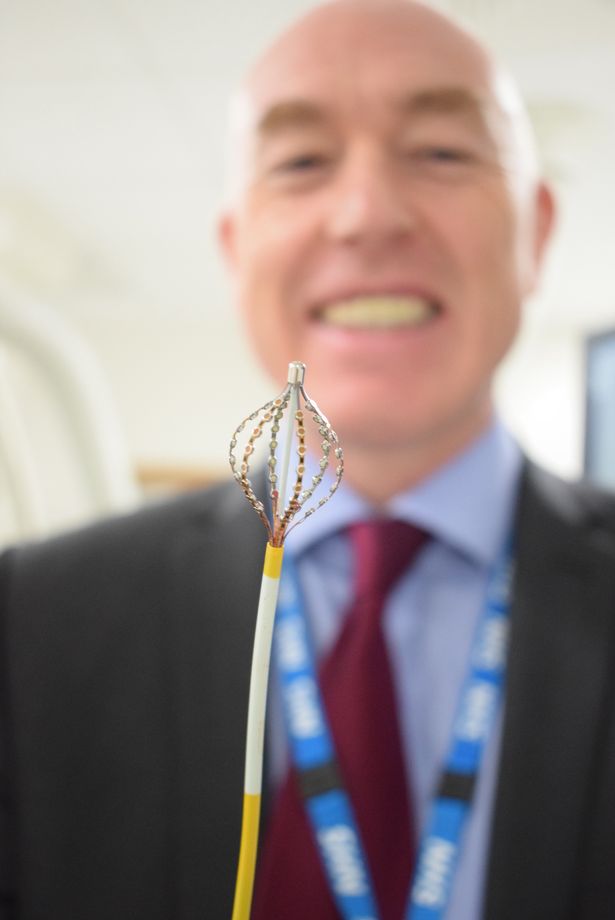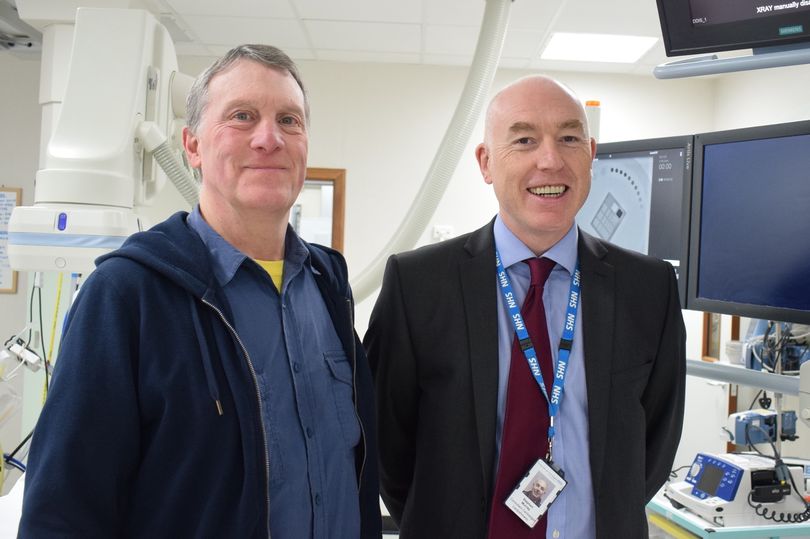Newcastle medics are leading the world in trial of new systems set to help hundreds of thousands of heart patients.
Medics at Newcastle’s Freeman Hospital are among the first in the world to ‘redesign’ the electrical circuits of the heart on a bid to save the lives of hundreds of thousands of patients.
Newcastle’s Cardiology team is one of only 16 in the world to trial a cutting-edge ‘Mapping System’ for irregular heart beats.
Irregular heart rhythms, or atrial fibrillation, is a leading cause of stroke and heart failure – affecting some 600,000 in the UK alone.
The region’s heart experts are now pioneering techniques at the Freeman Hospital’s Cardiothoracic Centre, with the introduction of a brand new approach to treating the problem.

Huge advances have been made in the treatment of irregular heart rhythms, and many patients now benefit from a treatment called ablation, where the electrical circuits in the heart are ‘re-designed’ using carefully placed ‘burns’ into the heart chamber.
This technique is highly successful for patients having the condition when the abnormal rhythm comes and goes of its own accord, but for patients with the arrhythmia present continuously, it has been harder to treat, with success rates at around 50%.
Pioneering techniques in Newcastle
Newcastle’s Freeman Hospital is one of only a handful of centres in Europe, able to offer a brand new technique called the AcQMap.
The system composes of a basket-style wire that is placed directly into the heart chamber through a small needle hole in the leg, and passed into the heart under x-ray control.
Once there, the wire expands into a spherical shape, and is studded with both electrodes and tiny ultrasound crystals. These work in combination to measure the size and shape of the heart chamber whilst simultaneously recording the waves of electricity that travel through the heart.
The recordings are made five times per second allowing the treating doctor to “see” in real time how the abnormal rhythm behaves in an individual patient through the production of 3D anatomical imagery.
Indeed, that is the key benefit we hope this system will bring – the ability to understand an individual’s own abnormal rhythm and then go on to treat it specifically to them, rather than applying burns in a “one size fits all” strategy.”
Dr Murray leading the research
The doctor leading the research at the Freeman Hospital is Dr Stephen Murray, Consultant Cardiologist and rhythm specialist.
He believes the technology brings an exciting opportunity to the patients served by the Freeman Hospital from across the North East, Cumbria and beyond.
Dr Murray said: “I’m so proud to be able to bring it to the Freeman Hospital, and I’d like to acknowledge the help and support from the cardiovascular research team here in securing the trial.”
The research study has just started in Newcastle.
One of the first to benefit from the pioneering technique is 65-year-old Rod Stapley from the west end of Newcastle.
Rod agreed to have the revolutionary, non-invasive procedure carried out by Dr Murray to correct a heart ‘flutter’.

Dr Murray said: “We suspect the ‘flutter’ is the result of scarring on his heart which has thickened and hardened following a major operation Rod had some 11 years ago to remove a non-cancerous tumour from his heart.
Rod said: “I’ve always been fit and healthy and was an extremely keen cyclist in years gone by so when I suddenly started to feeling tired and breathless, I knew something was wrong.”
Getting his buzz back
Rod was soon fitting fit again and back on his bike.
He added: “I’ve always thought to come through such a major operation meant there would be a trade off at some point, and I guess it came in the form of the heart flutter.”
Initially Rod had a cardioversion which corrected his heartbeat, but only for six months. His Consultant Cardiologist at the RVI, Dr Jane Skinner referred him to see Dr Murray at the Freeman Hospital who told him about the new mapping and ablation approach and Rod immediately agreed to take part.
“The heart unit at the Freeman Hospital has a reputation across the world for the amazing work they do and so I was more than happy to take part in this new trial.”
Rod added: “It didn’t take long and I was home the same day. Everything is back working as it should be and I feel like I’ve got my buzz back.”